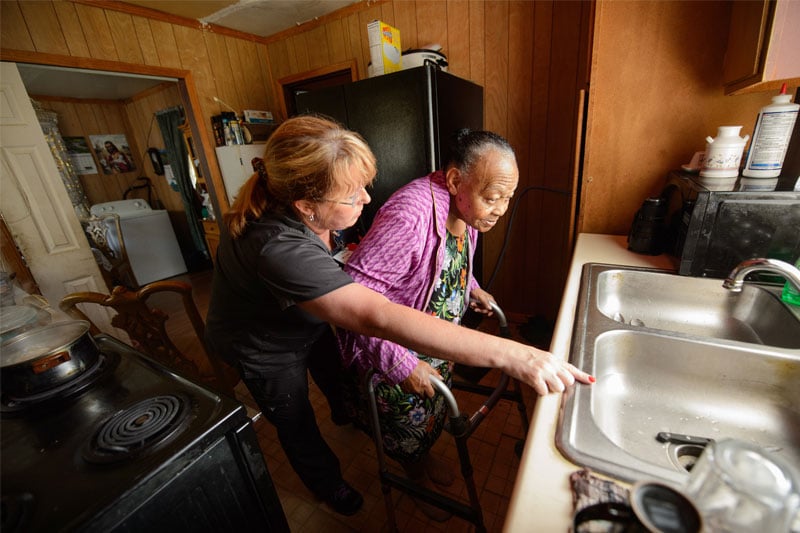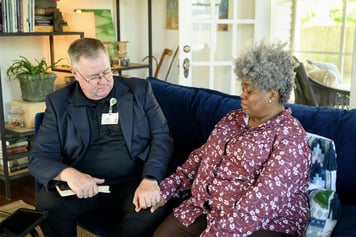[action 1]
Your body naturally loses water through sweating and urination. If your body loses more fluids than you drink, you become dehydrated. Severe dehydration can lead to cramping, shock, kidney failure and other serious problems.
If you’re 65 or older, especially if you have an ongoing illness, you have a higher chance of becoming dehydrated.
Dehydration can also be caused by heat exposure, high fever, vomiting and diarrhea, diuretic and laxative medications and fluid imbalance caused by certain conditions.
Follow these four steps to prevent dehydration:
- Drink plenty of water, as directed by your doctor.
- Eat foods with high amounts of water like fruits and vegetables.
- Avoid or limit drinks with caffeine like coffee, teas and soft drinks.
- Avoid or limit drinks with alcohol.
If you or your loved one has symptoms of severe dehydration, including excessive thirst, fever, rapid heartbeat, fast breathing, little or no urine, concentrated urine with a dark color and strong odor or confusion, contact your doctor immediately.



